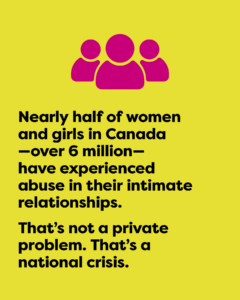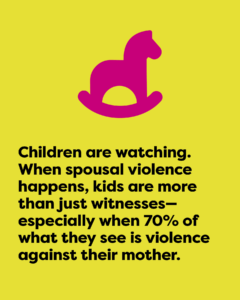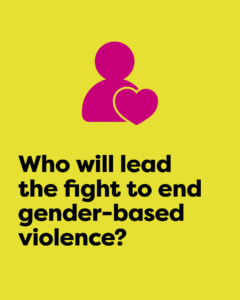The Reality at Home: What’s at Stake for Survivors in Canada’s Federal Election
As Canada prepares for a federal election on April 28, 2025, the political conversation will turn to taxes, trade, and economic recovery — but for millions of women, girls, and gender-diverse people, the most important question is far more personal: Will I be safe in my own home?
Because for many, home is not a place of safety. It’s where violence happens.
The Hidden Crisis in Canada’s Homes
More than 44% of women and girls in Canada who have ever been in an intimate relationship — about 6.2 million people — have experienced abuse. From psychological and emotional abuse to physical and sexual violence, the impact is devastating. And it doesn’t end with women.
Children are not just bystanders. In homes where spousal violence occurs, 70% of the time, children witness their mothers being assaulted. These assaults tend to be more serious, and the effects on children’s mental health, development, and safety are long-term.
These are not isolated incidents. These are systemic, widespread, and deeply connected to the political and economic decisions made by our leaders.
When the Economy Hurts, So Do Families
Too often, domestic and intimate partner violence is treated as a private matter — something removed from the broader economic and political landscape. But the truth is, economic policy is gendered policy.
When inflation rises and rents skyrocket, when wages stagnate and jobs disappear, when affordable housing and childcare are slashed — violence increases. Financial stress exacerbates abusive relationships. Women lose options. Survivors have fewer ways to leave. Shelters fill up, waitlists grow, and survivors are forced to choose between staying with an abuser or facing poverty and homelessness.
This is especially true in rural, northern, and remote communities where services are scarce and distances are vast. For Indigenous, Black, immigrant, disabled, and 2SLGBTQ+ survivors, the barriers are even higher.
Add to that the impacts of trade wars and tariffs, which make essentials like food and clothing more expensive. When the economy breaks under the weight of global uncertainty, it’s women and children who fall through the cracks first.
Election 2025: Time to Demand Better
That’s why feminist organizations across Canada, including Action Canada for Sexual Health and Rights, have come together under the #DemandBetter campaign. Their message is clear: we need candidates who are willing to take bold action for gender equity and economic justice — not just empty promises.
“It’s time to push candidates to build an equitable economy — one that doesn’t leave women, racialized communities, and survivors behind. Our future depends on it.”
This includes calls for universal child care, livable income supports, access to abortion and reproductive health, and measures to end gender-based violence. These are not fringe issues — they are foundational to a thriving society.
We Already Have a Plan — But It’s Being Ignored
In 2022, Canada introduced the National Action Plan to End Gender-Based Violence, the result of years of advocacy by survivors, frontline organizations, and communities across the country. It promised a coordinated federal, provincial, and territorial response to address prevention, protection, and support for those experiencing violence.
But the plan is now at risk.
Since the current Prime Minister eliminated the Ministry for Women and Gender Equality, there has been no national leadership to carry the plan forward. Funding commitments are unclear. Progress is slow. Survivors and service providers are being left in the dark.
Without a federal champion, the plan becomes a document with no direction. And survivors can’t wait.
A Call for Accountability at the Ballot Box
This federal election is a critical opportunity to change course. We need to elect leaders who understand that ending gender-based violence is not a side issue — it’s core to our national safety, our economy, and our humanity.
Voters should ask every candidate:
- Do you support full funding and implementation of the National Action Plan on GBV?
- Will you commit to restoring a national ministry dedicated to women, gender equity, and safety?
- What will you do to ensure survivors in rural and underserved areas have access to services?
- How will your economic policies reduce, not worsen, conditions that fuel violence?
We must hold all parties accountable — and ensure that their platforms address the realities of survivors, not just the interests of the powerful.
Hope Is Not Lost — But It Depends on Us
The good news is: we know what works. We’ve seen progress before. We’ve built shelters, developed legal supports, trained police and healthcare workers, and launched national campaigns. We’ve created plans that centre survivors and invest in community solutions.
But now we need action. We need investment. We need courage from our leaders — and from each other.
If we want a country where home truly means safety, we have to vote like it. We have to organize, speak out, donate, volunteer, and demand better.
Because change is possible — if we make it impossible to ignore








This is sadly a reality which should NOT be the norm. I was a child who was exploited and abused in a “socially acceptable” upper middle class household. I later was repeatedly exploited, abused and homeless due to the “self-less” identity I carried. I attempted to escape many times..with no support and no where to go. I was educated, I am intelligent, but my health was destroyed by all of the abuse and exploitation.
No one should have to live such a life. Now I live a very restricted survival. I will be glad when my life is over. No mor abuse, no more abandonment, no more horrible pain.